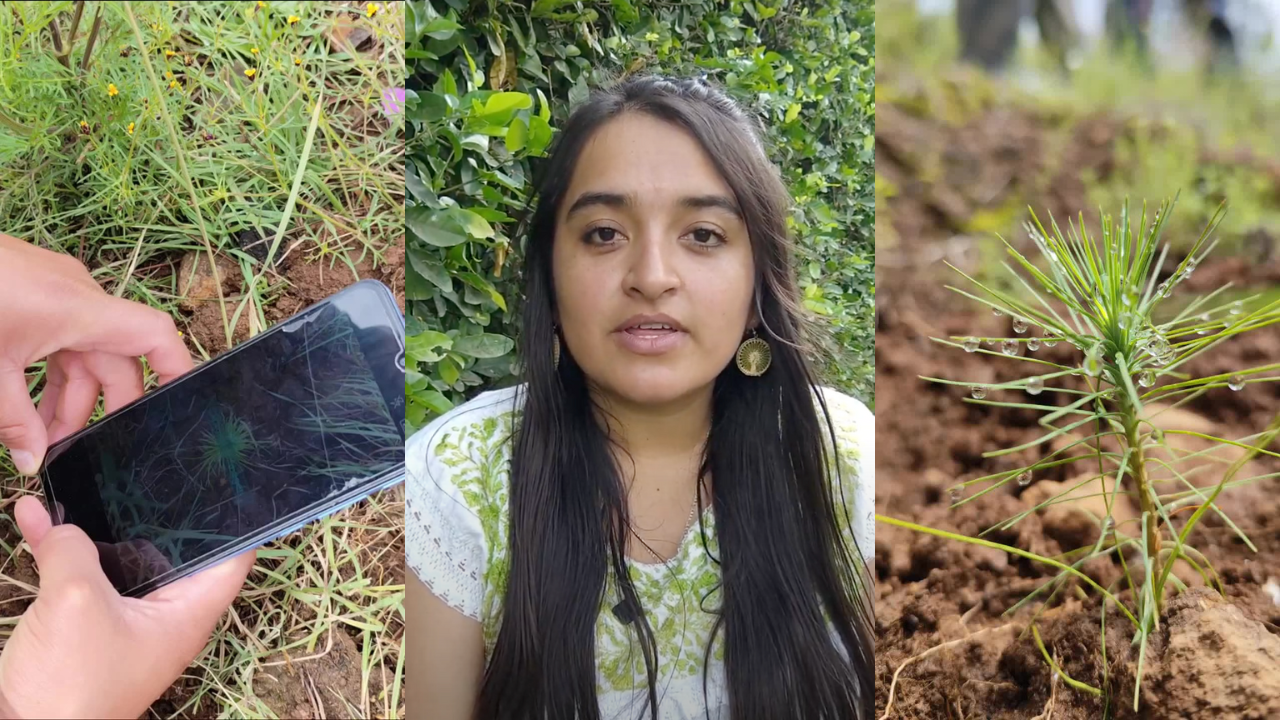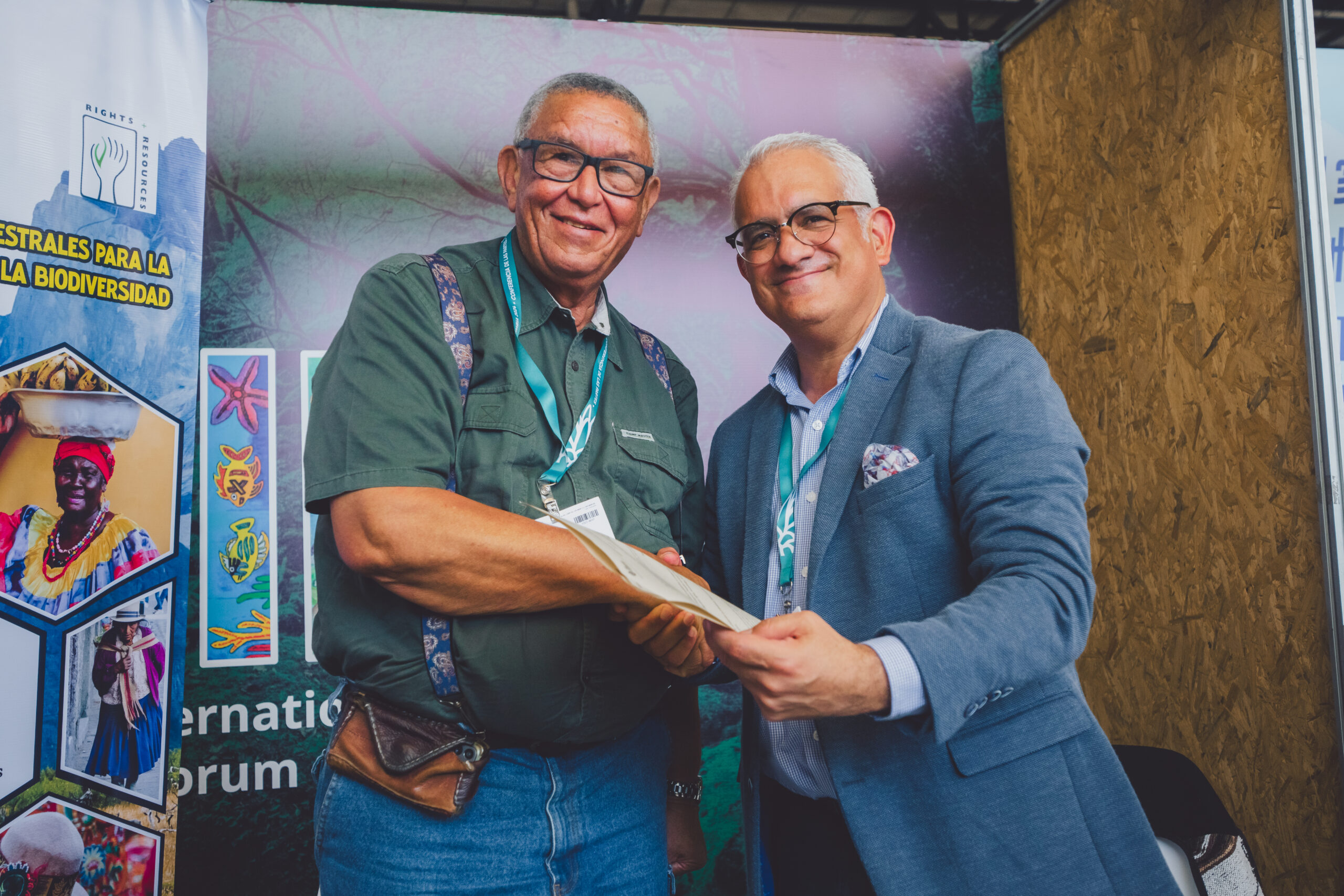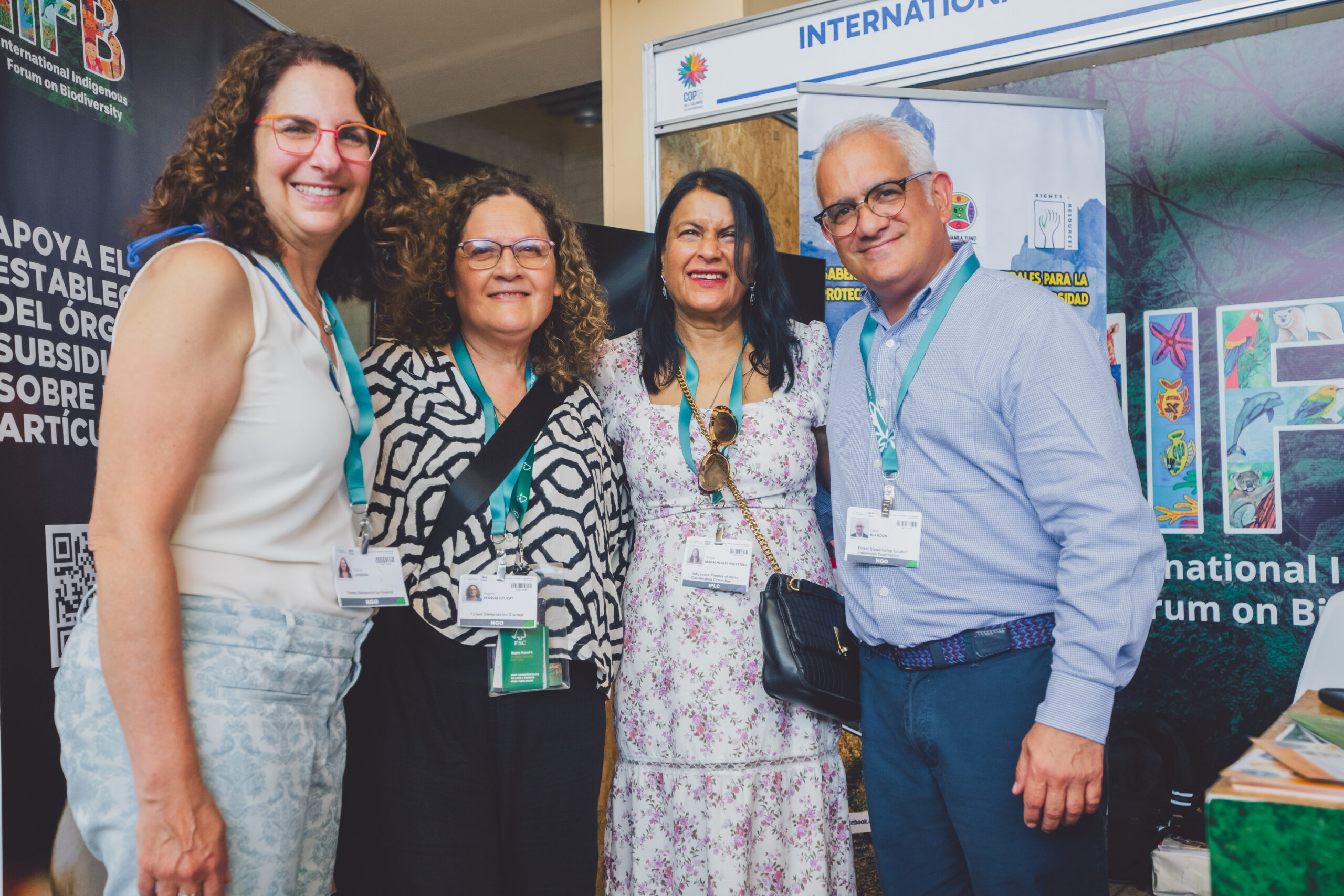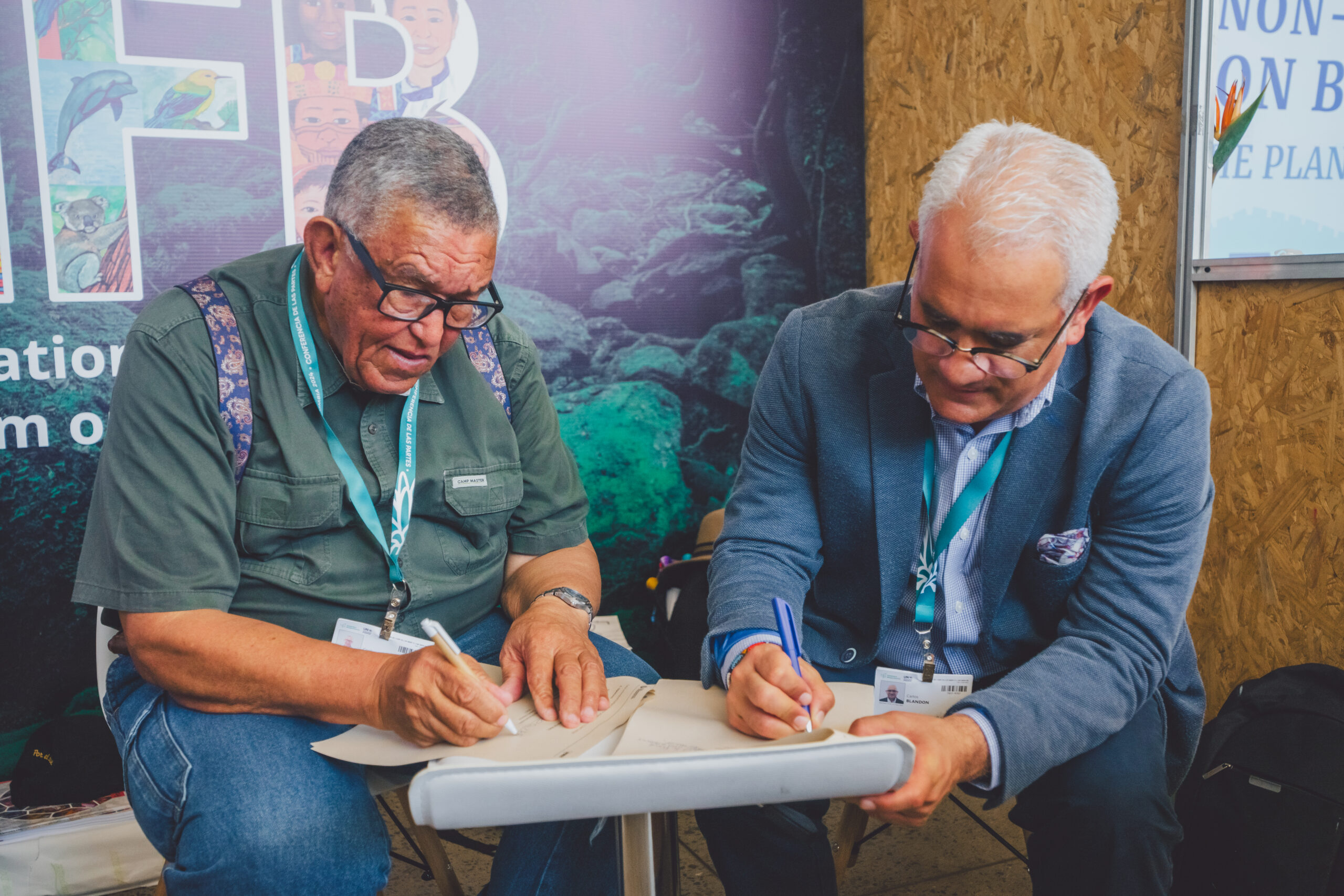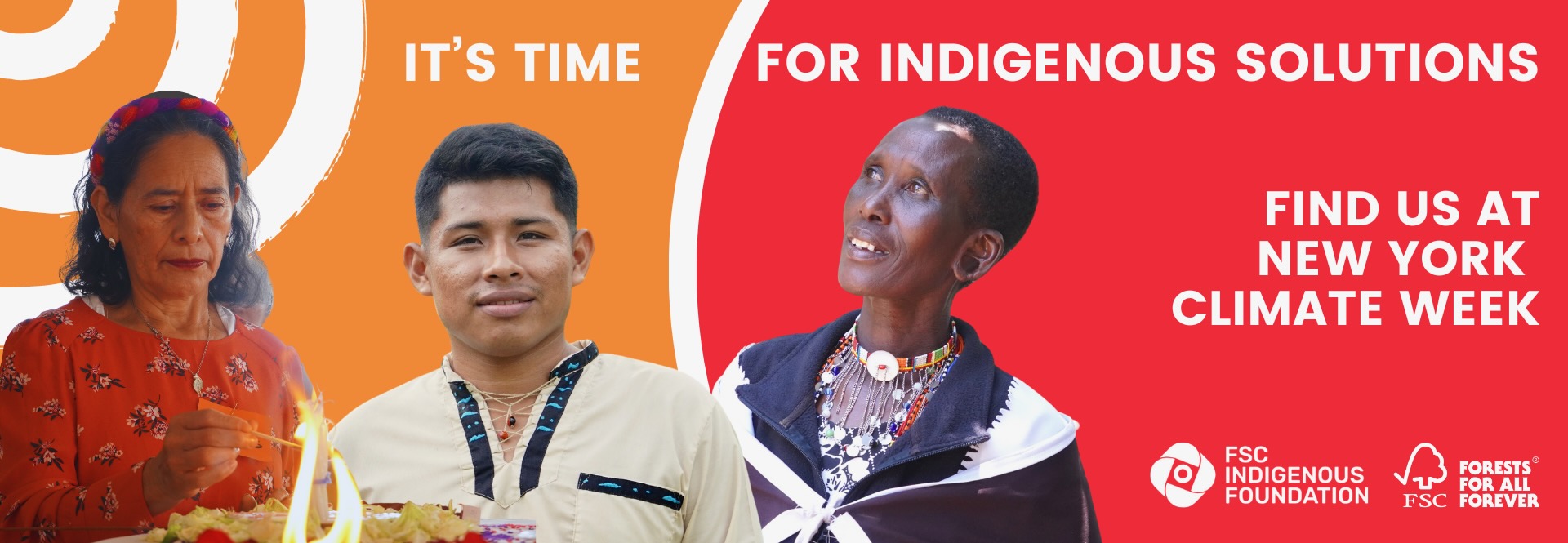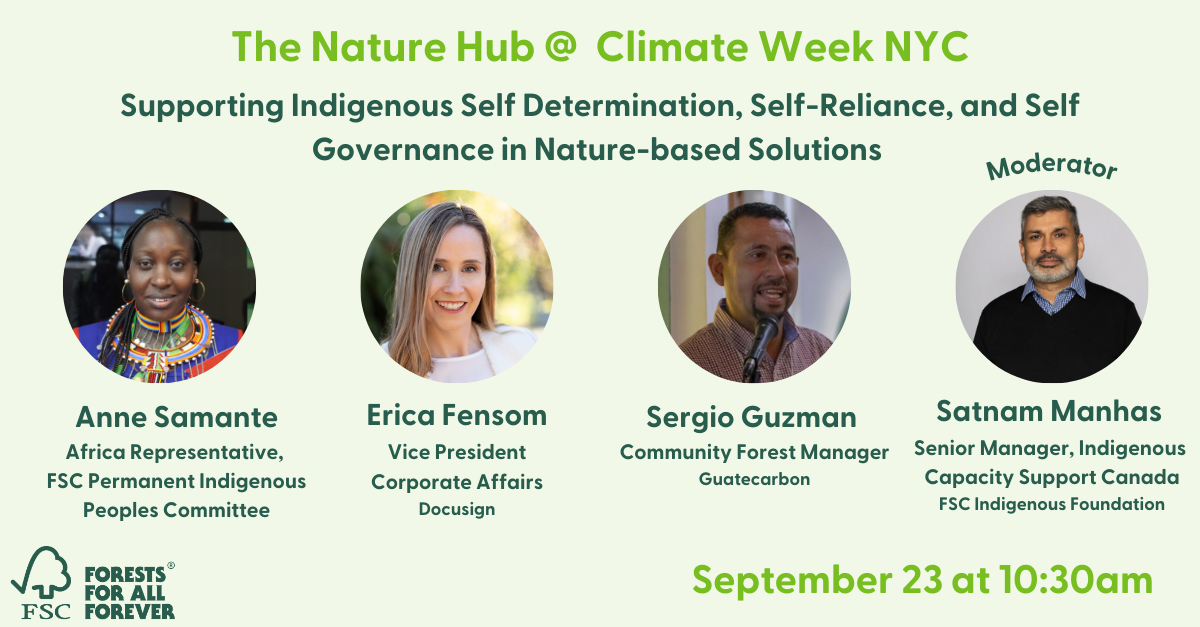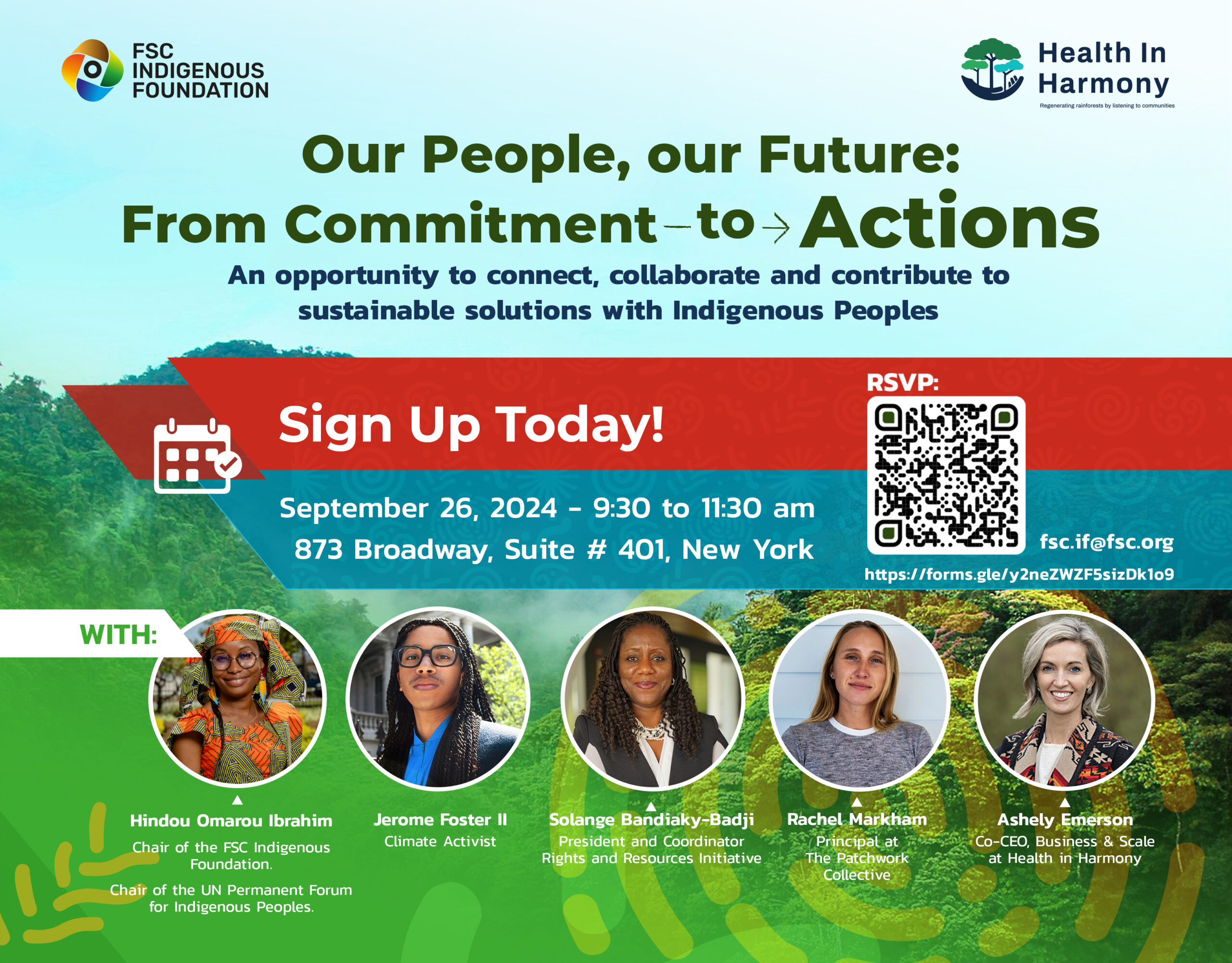Indigenous solutions at COP29
FSC Indigenous Foundation engagement at the UN Climate Change Conference in Baku, Azerbaijan
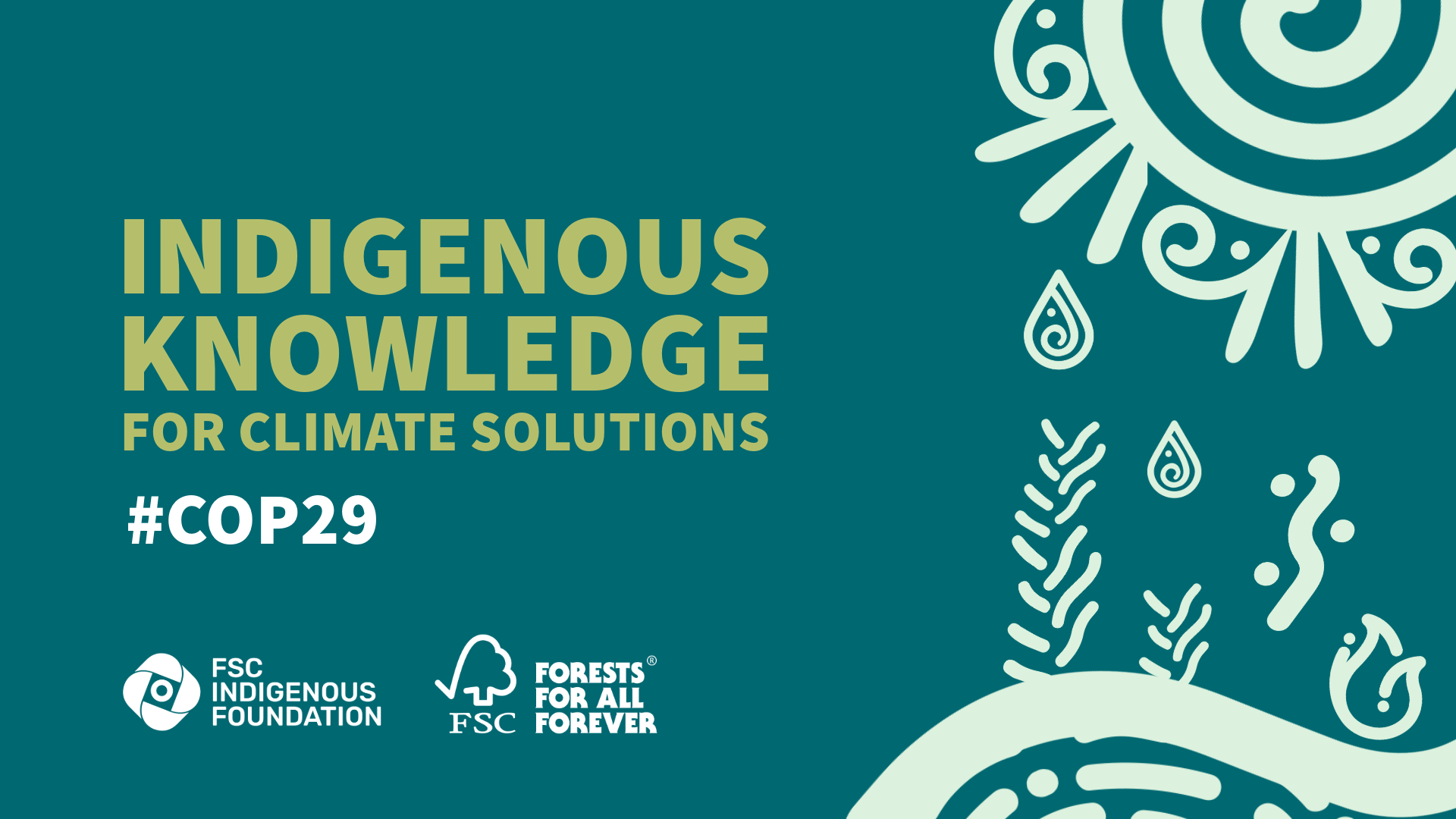
At the United Nations Climate Change Conference (COP29), a global coalition is gathering in solidarity in Baku, Azerbaijan, to address the climate crisis. As the world faces increasingly severe environmental disasters, Indigenous Peoples are on the frontlines with the knowledge and solutions needed to combat climate change. Their deep ecological wisdom, sustainable practices, and stewardship of the land are crucial for a sustainable future. Indigenous knowledge is a climate solution.
A green world is an Indigenous world
Indigenous Peoples manage 25% of the Earth’s surface, rich in biodiversity and home to 36% of the world’s intact forests. These territories could contribute up to 37% of global CO2 mitigation by 2030. Their role in tackling the climate crisis is essential. However, their rights must be fully recognized and supported to unlock their potential for climate solutions.
At COP29, the global community must take action to support the rights, self-devlopment, and self-reliance of Indigenous Peoples. When Indigenous Peoples’ rights are respected, their ecological knowledge can guide sustainable resource management for future generations. While stakeholders gather this week in solidarity for a green world, we know that a green world is an Indigenous world, and together, we can make this vision a reality.
The FSC Indigenous Foundation at COP29
We are attending COP29 to highlight the essential role of Indigenous communities in climate action, advocate for direct climate funding to Indigenous Peoples, and engage with diverse stakeholders, implementing our multi-sectoral approach. Our delegation includes:
Salina Sanou, Africa and Asia Regional Director and IPARD Deputy Director
Olga Kostrova, FSC Permanent Indigenous Peoples Committee (PIPC) member
Anne Samante, FSC Permanent Indigenous Peoples Committee (PIPC) member
Basiru Isa, FSC Permanent Indigenous Peoples Committee (PIPC) member, REPALEAC
Integrating Indigenous Peoples into Nationally Determined Contributions
At COP29, with an increased focus on inclusivity and just transitions, it is imperative to explore how Indigenous Peoples can meaningfully participate in developing and implementing Nationally Determined Contributions (NDCs). We invite you to join us for a side event at COP29 co-hosted by the Indigenous Peoples of Africa Coordinating Committee (IPACC) and the Network of Indigenous and Local Communities for the Sustainable Management of Forest Ecosystems in Central Africa (REPALEAC) to discuss actionable ways to include Indigenous Peoples in the NDC process.
By creating a platform for dialogue and collaboration, this event aims to bridge the gap between policy frameworks and the grassroots knowledge that Indigenous communities offer.
Find more information below.
Find us at other key events organized by the Forest Stewardship Council. More information here.
Indigenous women on the frontline against climate change
Listen to Indigenous women from around the world share how climate change is affecting their communities and the innovative solutions they bring to adapt to and mitigate climate change.
Join us!
The FSC Indigenous Foundation seeks partnerships with governments, multilateral institutions, and the private sector to achieve visionary goals by leveraging the power of your resources, your expertise, and your innovative tools. Let’s work together to elevate Indigenous solutions for climate action and shape policies that respect and incorporate traditional knowledge.
If you would like to meet us during COP29 to discuss how we can build sustainable solutions together, write to us at fsc.if@fsc.org.

